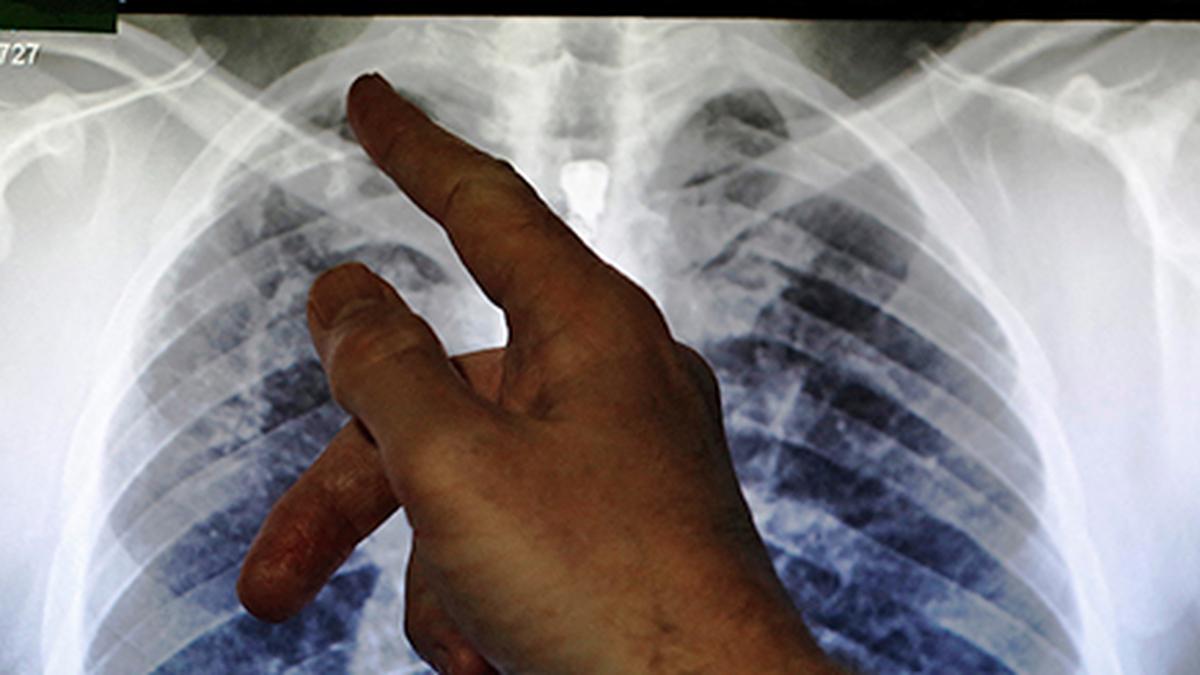Science
Maharashtra Health Department Enhances TB Screening in Medical Colleges

The Maharashtra Health Department has initiated a significant effort to enhance the identification of individuals with presumptive Tuberculosis (PwTB) by integrating Active Case Finding (ACF) into the Family Adoption Programme (FAP) at medical colleges. This directive aims to address the delays often associated with diagnosing TB cases, a challenge that impacts public health in the region.
Dr. Sandeep Sangale, Joint Director of the Maharashtra State Health Services (TB and Leprosy) department, issued a notice mandating that medical colleges incorporate TB screening activities into their FAP. The collected data from these screenings will be submitted to respective District TB officers for integration into the National Tuberculosis Elimination Programme (NTEP). This proactive approach follows a successful pilot program conducted by Bharati Vidyapeeth Medical College in collaboration with the District TB Unit in rural areas of Pune.
Implementation of Active Case Finding
The integration of ACF activities into the FAP was inspired by a pilot program that took place in September 2022. This initiative involved community screening for TB through door-to-door visits and provided invaluable hands-on experience for medical students. The team behind the proposal, which included Swathi Njarekkattuvalappil, Saibal Adhya, and Sanjivani Patil from Bharati Vidyapeeth Medical College, and Sanjay Darade from the Pune District TB Centre, found that this method significantly improved early detection of TB.
According to their findings, Maharashtra is home to approximately 80 medical colleges, both government and private, with an average annual intake of 150 students each. Under the FAP, each student can engage with five households over the course of three years, allowing for an extensive reach. As a result, the program could potentially screen around 60,000 households, impacting approximately 240,000 individuals annually across the state.
“The pilot program was about providing hands-on experience to detect presumptive TB in individuals for early-stage treatment,” said Njarekkattuvalappil. “This was more about training MBBS students to ask the right questions and detect symptoms for further diagnosis.”
Impact and Future Plans
The pilot program was implemented in four villages, including Bhukum and Ambarwet, where a total of 959 individuals were screened. Out of these, 10 were identified as having presumptive TB. This area was selected due to its high reported cases of TB, with Paud accounting for 1,057 cases in 2022, representing 13% of the total notified cases in Pune Rural.
Maharashtra contributes significantly to India’s TB burden, reporting approximately 234,000 cases in 2022, which constitutes around 10% of the total cases nationwide. Alarmingly, nearly 64% of the symptomatic population in India does not seek healthcare, often due to a lack of awareness or neglect of symptoms.
In light of the new integration directive, Njarekkattuvalappil confirmed that meetings will be held with medical deans, directors, and district medical officers next week. The aim is to explain the process thoroughly and share key details about the integration, including the questionnaire designed for the screenings.
This initiative reflects a strategic shift in public health policy aimed at improving TB detection and ultimately reducing the disease’s impact on communities throughout Maharashtra.
-

 World5 months ago
World5 months agoSBI Announces QIP Floor Price at ₹811.05 Per Share
-

 Lifestyle5 months ago
Lifestyle5 months agoCept Unveils ₹3.1 Crore Urban Mobility Plan for Sustainable Growth
-

 Science4 months ago
Science4 months agoNew Blood Group Discovered in South Indian Woman at Rotary Centre
-

 World5 months ago
World5 months agoTorrential Rains Cause Flash Flooding in New York and New Jersey
-

 Top Stories5 months ago
Top Stories5 months agoKonkani Cultural Organisation to Host Pearl Jubilee in Abu Dhabi
-

 Sports4 months ago
Sports4 months agoBroad Advocates for Bowling Change Ahead of Final Test Against India
-

 Science5 months ago
Science5 months agoNothing Headphone 1 Review: A Bold Contender in Audio Design
-

 Top Stories5 months ago
Top Stories5 months agoAir India Crash Investigation Highlights Boeing Fuel Switch Concerns
-

 Business5 months ago
Business5 months agoIndian Stock Market Rebounds: Sensex and Nifty Rise After Four-Day Decline
-

 Sports4 months ago
Sports4 months agoCristian Totti Retires at 19: Pressure of Fame Takes Toll
-

 Politics5 months ago
Politics5 months agoAbandoned Doberman Finds New Home After Journey to Prague
-

 Top Stories5 months ago
Top Stories5 months agoPatna Bank Manager Abhishek Varun Found Dead in Well









